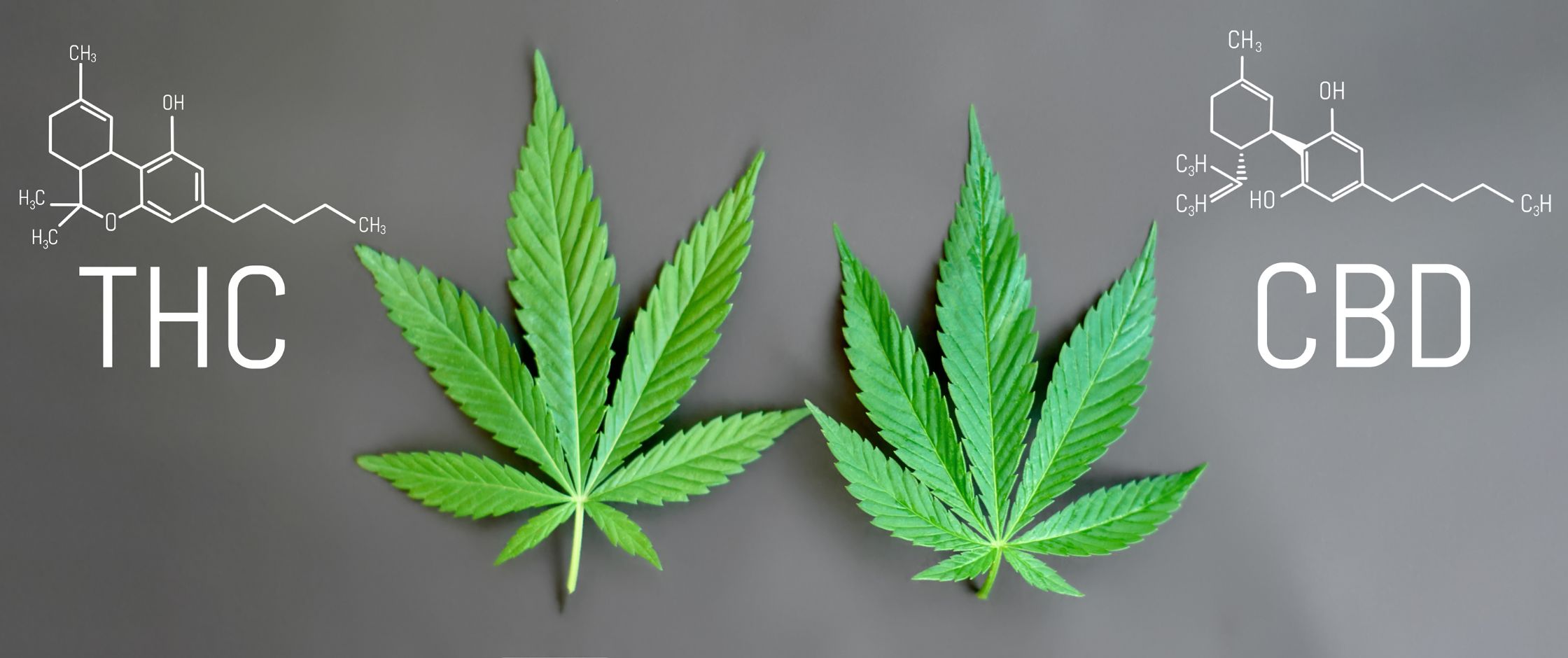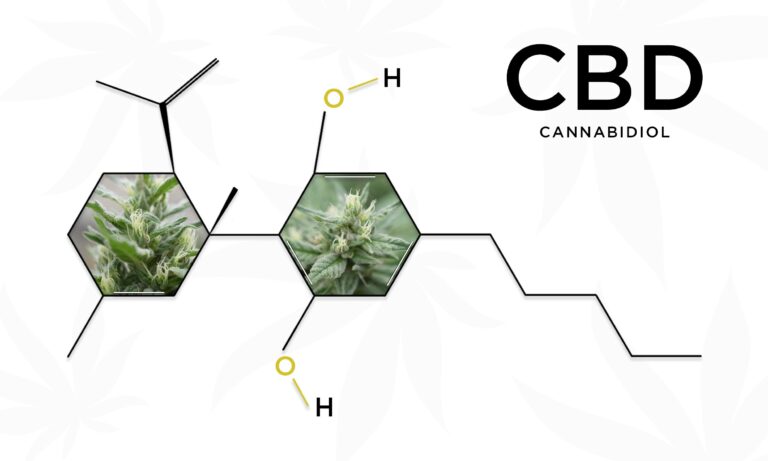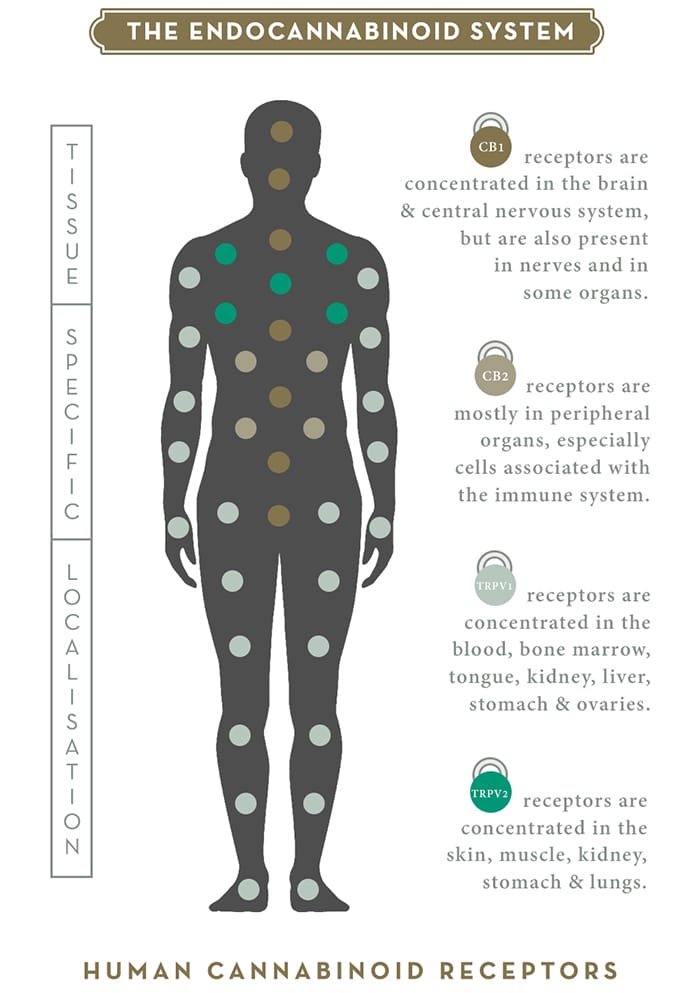
CBD vs THC: Understanding the Key Differences, Effects, and Benefits
The debate between CBD and THC is one that has captured the attention of wellness enthusiasts, medical professionals, and casual users alike. Both found in the cannabis plant, these compounds have unique properties, benefits, and effects that cater to varied needs and preferences. We even cover the topic of CBV vs THC for anxiety.
The Fundamental Distinctions: What is CBD vs THC?
A Brief Overview of CBD (Cannabidiol)
CBD, commonly extracted from hemp plants within the cannabis genus, is celebrated for its potential medical benefits without producing a high. Notably used as an effective remedy for anxiety and epilepsy, its therapeutic properties are constantly under research. Here’s an insightful resource on CBD’s role in treating epilepsy. It is important to note that not all cannabis may be good for anxiety. Read below about CBD vs THC for anxiety.
Decoding THC (Tetrahydrocannabinol)
Derived primarily from the marijuana strain of cannabis, THC is the indicator for the psychoactive experience or high. While it offers its own range of medicinal benefits, from pain relief to aiding sleep, it is THC’s mind-altering effects that differentiate it most from CBD.
Delving Deeper: CBD vs THC Effects
The Psychoactive Divide: CBD vs THC High
While THC offers an unmistakable high largely associated with weed or marijuana, CBD tends to counterbalance or even neutralize these effects. This piece on full-spectrum CBD vs. CBD isolates sheds light on how the entire spectrum of cannabinoids can play a role in determining the user experience.
Medicinal Attributes: CBD vs THC for Pain and More
Both these cannabinoids have been linked to a range of medical applications. From offering relief against chronic pain, assisting with neuropathy, to even showing potential in cancer treatment. Curious about how CBD products can contribute? This full-spectrum CBD product might be worth considering.
Product Varieties: From Flowers to Edibles
Choices in Consumption: CBD Gummies vs THC Edibles
The market is flooded with diverse products infused with either of these compounds. Gummies and edibles offer an easy and flavorful way to consume. On comparing CBD gummies and THC edibles, THC often promises a longer-lasting high, while CBD is more subtle, leaning towards relaxation. The differences between hemp oil and CBD oil are beautifully outlined here.
CBD vs THC: Addressing Anxiety Concerns
Molecular Differences and Their Impacts on Anxiety
The unique molecular structures of both THC and CBD, as depicted in our Comparative View: THC vs CBD Molecular Structures, have different interactions with the body’s endocannabinoid system. While both are derived from the cannabis plant, their effects on anxiety can vary significantly.
CBD vs THC The Anxiogenic Effects
THC, represented on the left side of our comparative image, is often associated with psychoactive effects. In some individuals, especially in higher doses, THC can exacerbate feelings of anxiety or even induce paranoia. This heightened state of nervousness is attributed to THC’s direct interaction with the brain’s CB1 receptors. As a recap, when it comes to CBD vs THC for anxiety this is a huge thing to remember. Full spectrum CBD oil might be a better solution.
CBD vs THC Potential in Alleviating Anxiety Symptoms
On the contrary, CBD, shown on the right with the iconic cannabis leaf, has been studied for its potential anxiolytic (anxiety-reducing) properties. Unlike THC, CBD doesn’t bind directly to the CB1 or CB2 receptors, instead, it modulates their activity. Some studies and anecdotal evidence suggest that CBD can help counteract the anxiety-inducing effects of THC. This balance and interaction between the two compounds can be crucial for individuals seeking relief from anxiety.
Exploring Products for Anxiety Management
For those keen on exploring cannabinoid-based relief, products like Genesis Blend Full Spectrum CBD Oil offer a balanced blend that could be beneficial. It’s always recommended to consult with healthcare professionals before starting any new treatment or supplement.
The Flower Debate: CBD Flower vs THC Flower
While CBD flowers predominantly come from hemp, THC-rich flowers are sourced from marijuana. Their uses and effects vary just as their sources do. When it comes to Indica vs Sativa, that has to do with how the plant looks not how it makes you feel or interacts with your endocannabinoid system. It is a myth that indica strains of plants make you tired. No scientific evadence exists to show the cannabinoids in india are differant than sativa. The india vs sativa debate is solved by understanding that indica plants are shorter and bushy. The sativa plants are taller and thinner.
Legal Landscape and Global Perspectives
CBD vs THC Differeneces
In the global arena, differences or differences in the perception, use, and legality of CBD and THC vary. Many countries are increasingly accepting of CBD’s therapeutic uses, while THC, owing to its psychoactive effects, still encounters reservations.
Legalities and Precautions
While THC remains illegal or controlled in many parts, CBD, especially derived from hemp, is more widely accepted. However, it’s crucial to verify the legal landscape in your region. For a deeper understanding of the entourage effect in full-spectrum products and how different cannabinoids work synergistically, check out this informative link.
Throughout your journey in understanding CBD and THC, always be guided by reliable medical and scientific sources. For a comprehensive understanding of the endocannabinoid system and its interaction with cannabinoids, visit this detailed guide.
Always remember that individual reactions to CBD and THC can vary, so starting slow and consulting with a healthcare provider is advised.
The Shocking Truth About CBD vs. THC
Have you ever wondered what the shocking truth is about the difference between CBD vs. THC? Are you looking for the differences between these two potent cannabinoids? In this blog post, we will discuss the differences between CBD and THC, as well as THC vs. CBD. We will be exploring the medical benefits of both cannabinoids and which one offers the most beneficial effects for different ailments. By the end of this article, you will better understand the two and be able to make an informed decision on which one is best for your specific needs.
CBD vs. THC – What’s the difference?
The most significant difference between CBD and THC is the effect each has on the body. While both are naturally occurring cannabinoids in hemp and marijuana, their impact on the body is quite different.
CBD is non-psychoactive, meaning it won’t make you feel “high” or intoxicated, while THC is psychoactive and will produce a feeling of being high. In addition, CBD is known to have a more calming and relaxing effect on the body, while THC is known to have a more stimulating and energizing effect.
CBD is the dominant cannabinoid in cannabis we refer to as hemp. In hemp, its second most prevailing cannabinoid is THC. In cannabis plants that we often call marijuana or pot, the dominant cannabinoid is THC, and the second most prevailing cannabinoid is CBD.
Each type of cannabis, cannabis CBD and cannabis THC have many minor cannabinoids and terpenoids that are beneficial to the endocannabinoid system in all mammals.
While THC and CBD interact with the endocannabinoid system, they do so differently. For instance, THC binds directly to the CB1 receptors in the brain and can produce a feeling of euphoria. On the other hand, CBD does not bind directly to CB1 receptors and can help balance out THC’s effects attach.
In conclusion, CBD and THC are two very different compounds with distinct effects on the body. While THC can produce a feeling of being high, CBD has a more calming and relaxed feeling. Both interact with the endocannabinoid system differently, making them practical for treating different medical conditions.
How do they work in the body?
CBD and THC both interact with our bodies in very different ways. CBD is a non-intoxicating compound found in cannabis, meaning it will not produce a high. This compound has been known to have many therapeutic benefits due to how it interacts with our body’s endocannabinoid system. When consumed, it interacts with cannabinoid receptors throughout our body, activating specific pathways to help regulate pain, mood, sleep, and more.
On the other hand, THC is the primary psychoactive compound found in cannabis and is responsible for producing the “high” commonly associated with marijuana use. Unlike CBD, THC binds directly to our brain’s cannabinoid receptors, creating a euphoric feeling and altering perception, mood, and consciousness. Though THC also interacts with our body’s endocannabinoid system, the effects of this interaction are much more powerful and intense.
By understanding how these two compounds interact with our bodies, we can better understand their potential benefits. It’s important to note that while both compounds can be beneficial in different ways, they should be distinct from having the same effects.
What are the medical benefits?
The medical benefits of THC and CBD are pretty different. THC is a psychoactive compound found in cannabis and has been used to treat various medical issues. It effectively treats chronic pain, reduces nausea and vomiting, and stimulates appetite.
THC can also help reduce inflammation, reduce muscle spasms, and even protect nerve cells from degeneration.
On the other hand, it is a non-psychoactive cannabinoid gaining popularity due to its many potential health benefits. Studies have found that CBD can help treat various conditions, including chronic pain, epilepsy, anxiety, and depression. It has also been shown to reduce inflammation and promote brain cell growth.
Both THC and CBD have their unique medical benefits and can be used to treat various conditions. However, it is essential to note that some research suggests that the effects of THC may outweigh those of CBD in certain situations. For instance, THC is more effective than CBD in treating certain forms of cancer, such as glioblastoma multiforme.
On the other hand, CBD is more effective than THC in treating certain forms of epilepsy, such as Dravet Syndrome and inflammation. It is essential to consult a healthcare professional before deciding which may benefit you.
Are there any side effects?
When it comes to side effects, natural cannabis products are usually regarded as safe as long as you are purchasing from a reliable source. However, using isolated synthetic cannabinoids can cause harm. As well as, THC can cause some minor side effects in certain people. These can include nausea, dizziness, dry mouth, fatigue, and changes in appetite, feeling of high. In some cases, THC can increase anxiety. It is important to note that everyone reacts differently to each cannabinoid, so it’s essential to research and find the one that works best for you.
Those taking THC can be more likely to experience short-term memory issues or difficulty concentrating due to the psychoactive effects. Those taking CBD, however, are less likely to experience these side effects because CBD does not have a psychotropic effect.
Overall, it is essential to remember that both CBD and THC can have potential side effects. However, the risks can be minimized with the proper dose and guidance from a medical professional. Here is a PubMed on Synthetic and Non-synthetic Cannabinoid Drugs and Their Adverse Effects-A Review From Public Health Prospective
While natural cannabis has not been linked to actual harm, new designer synthetic cannabinoids like K2, Spice, Serenity Delta-8, HHC, and many more pose the potential for injury. These new designer synthetic cannabinoids like Delta-8 are linked to deaths and hospitalizations just like the synthetic cannabinoids K2, Spice, and serenity are connected to.
Marinol is a pharmaceutical isolated THC pill available by prescription. It has been open to the public for many years. Doctors and reports show better relief using natural cannabis over the isolated THC pharmaceutical option. If the single isolated cannabinoid products were adequate, the THC pill should have blistering sales, yet that is not the case, as the demand for natural cannabis is on the rise.
Which one is better for you?
Considering CBD vs. THC ultimately depends on what medical benefits you are looking for. THC has been proven to have cancer-killing properties, making it the ideal choice for cancer patients. However, if you are looking to treat epilepsy or seizures, then CBD is the better option.
Both substances interact with your endocannabinoid system to provide relief, but they also have different effects on the body. When deciding which is best for you, understanding the differences between CBD and THC is essential to make an informed decision. Ultimately, both substances have unique advantages and disadvantages, so it’s up to you to determine which is best suited to your specific needs.
CDB for Epilepsy
Epilepsy is a condition that affects millions of people worldwide and is characterized by recurrent, unprovoked seizures. Despite advances in traditional pharmaceutical treatment, many individuals still struggle to find relief from their symptoms. Fortunately, there is growing evidence that CBD can help those with epilepsy. With the safety profile of full-spectrum CBD oil, we feel it may be the best place to start, as many of the standard anti-epilepsy drugs are very dangerous and harm the liver. As we have experienced in our own family with our son’s case.
Research has shown that CBD has anti-seizure properties, making it a promising alternative treatment for those with epilepsy. In 2018, the FDA approved the use of Epidiolex, a purified form of CBD oil, for treating two rare conditions of epilepsy: Dravet Syndrome and Lennox-Gastaut Syndrome. Clinical trials have found that taking Epidiolex significantly reduces the frequency and severity of seizures in those with these two types of epilepsy.
While the FDA has approved Epidiolex as a product, it is less effective than natural full-spectrum CBD oil due to the manufacturing process used to make it. It may also create liver issues, as their research suggests, when mixing with pharmaceuticals.
CBD oil may also benefit those suffering from more common forms of epilepsy. Additionally, CBD appears to have fewer side effects than traditional antiepileptic drugs. CBD oil and antiepileptic medications shouldn’t be mixed. They all fight for the same neuro receptors and can increase seizure activity if one is not careful.
While more research is needed to determine the full extent of CBD’s effects on epilepsy, the current evidence is highly promising. With its potential to reduce seizure frequency and severity and its lack of severe side effects, CBD may be a viable option for those struggling to manage their condition.
THC for Cancer
Cannabis has been used to treat cancer for centuries, and THC is one of the primary active ingredients in cannabis that offers medicinal benefits. THC binds to cannabinoid receptors in the body, stimulating them to regulate cell growth and causing an anti-cancer effect. Studies have shown that THC can reduce tumor growth in certain types of cancer, including pancreatic, brain, and breast cancer. THC is also thought to help boost the effectiveness of chemotherapy and radiation treatments. While more research needs to be done, the evidence is promising.
In addition to its anti-cancer properties, THC has also been found to help reduce the side effects of cancer treatment. It can help relieve pain, nausea, loss of appetite, anxiety, and insomnia, among other symptoms. THC is believed to be able to alleviate these symptoms because it activates the endocannabinoid system in the body, which helps to balance bodily functions.
Overall, THC has potential medicinal value for people with cancer. However, it’s important to note that THC is only one component of cannabis, and more research is needed to fully understand how it works and how it can be best used. Additionally, it’s essential to talk to your doctor before using any cannabis product to treat cancer. The solution to killing cancer is not smoking it to death but proper application of the cannabinoids.
The Future of Cannabis CBD and Cannabis THC
As the cannabis industry continues to grow, the potential of both CBD and THC are being explored. Scientists continue to find more and more potential medical applications for these two compounds.
Studies have already been conducted that both CBD and THC can be used to treat various conditions, including epilepsy, cancer, chronic pain, anxiety, inflammation, and even addiction.
As new research emerges, there is potential for these compounds to become even more critical in the medical community.
The future of CBD and THC is not just in the medical world. In many states, the recreational use of marijuana is legal, and CBD and THC are becoming more accepted as part of society.
As more states legalize marijuana for recreational use, more people are becoming aware of the potential benefits of these two compounds. This could lead to a greater acceptance of cannabis products and a larger market for CBD and THC products.
The future of CBD and THC also lies in the research being conducted on them. As scientists learn more about these compounds and their potential medical benefits, more clinical trials will be conducted to determine which forms and dosages provide the best results.
This could lead to more excellent knowledge of the potential benefits of these compounds and more accurate recommendations for those looking to use them.
Overall, the future of CBD and THC looks very promising.
With more research being conducted on the potential medical benefits of these two compounds, as well as the other cannabinoids that are contained in the plant, they may soon become even more widely accepted in the medical community. As they gain acceptance, they could become even more common as treatments for various conditions. The potential of these two compounds could be endless.
What is Kentucky Medical Cannabis and Where Can I Find Dispensaries?
When it comes to finding sources of medical cannabis, Kentucky is a relatively new market. See the current law and future. However, in the last few years, the state has seen an influx of dispensaries offering high-quality medical cannabis products.
Questions and Answers about Cannabis
-
What is Cannabidiol (CBD)
CBD is one of more than 100 active cannabinoid chemicals in the cannabis plant and the predominate cannabinoid in hemp. It’s what makes hemp – hemp!
CBD Compound graphic -
How does CBD work?
Humans have naturally occurring cannabinoid receptors located in the brain and throughout the body (central nervous system, peripheral nervous system, organs). They are part of the Endocannabinoid System (ECS) which is involved in a variety of physiological processes. CBD, or cannabidiol, stimulates the production of our own naturally occurring cannabinoids. These cannabinoids promote health in ways that are still being discovered.
Endocannabinoid System in the human body -
What are cannabinoids
There are more than 100 identified cannabinoids found in hemp. They are the primary chemical compounds produced by cannabis plants. These compounds are key in normal immune and central nervous system functioning.
Hemp produces more than 100 different phytocannabinoids naturally. Of the 100+ non-psychoactive phytocannabinoids, Cannabidiol (CBD) is the most widely known. Others include Cannabigerol (CBG), Cannabichromene (CBC) & more.
What are Cannabinoids Video -
What is the Endocannabinoid System (ECS)
The Endocannabinoid System (ECS) in an important physiological system discovered in the 1990’s. Located in the brain and throughout the central and peripheral nervous systems, the ECS is involved in establishing and maintaining human health. While it affects a wide variety of biological processes, experts believe its overall function is to regulate and promote homeostasis in the body.
-
What is better? Isolates (single-molecule) or whole plant extractions
Full-spectrum cannabinoid extractions, like Bluegrass Hemp Oil, are definitely better! Single-molecule advocates reflect a cultural and political bias that benefits Big Pharma products. It is not the ideal way to receive the benefits of CBD. Cannabis sativa contains several hundred compounds, including various flavonoids, terpenes, and many other cannabinoids in addition to CBD. Each of these compounds have unique therapeutic attributes, but when combined they create what scientists refer to as a holistic “entourage effect,” so that the therapeutic impact of the whole plant is greater than the sum of its single-molecule parts.
-
Does it really matter where the CBD comes from
Yes. Absolutely. Single-molecule CBD synthesized in a lab (crystalline), extracted and refined from retted industrial hemp stalks lacks critical medicinal terpenes and secondary cannabinoids found in high-CBD Cannabis sativa strains. These compounds are essential as they interact with CBD to enhance its therapeutic benefits. Because of the poor results of past single molecule cannabis products, we feel it’s better to include the whole natural array of cannabinoid goodness in the plant.
-
What is the shelf life of CBD Oil
Preliminary data shows that if stored properly, there is no observed degradation of Bluegrass Hemp Oil or Batch products up to 1 year. We continue to evaluate these findings.
-
Do you ship Bluegrass Hemp Oil products to all 50 states
Yes, we proudly ship to all 50 states! Our full spectrum CBD products contain at or below 0.03% THC
-
Is your product water soluble
No. Cannabinoids and terpenes in their natural state are not water soluble. They are soluble in lipids and fats however. Water soluble products contain cannabinoids and terpenes that have been manipulated in a lab or production facility overall limiting their efficacy. A popular term for this is Nanotechnology.
-
How quickly will I see results
This question isn’t easily answered. Results will vary based on:
- The health of their Endocannabinoid System (ECS) – People can be deficient in endocannabinoids, deficient in cannabinoid receptors or deficient in both. There is no way to know until they start taking the products. That is why consistency is key! Serving twice a day, every day. See more about your Endocannabinoid System.
- The health of the individual – Help CBD help you. Healthier eating, exercising, stress management, etc. in addition to CBD is the way to success. See more about Food for ECS (Endocannabinoid System) Success
Pharmaceutical regimen – Pharmaceutical interaction can prohibit CBD from working properly in the system. Consumers should always talk to a physician before adding CBD to their daily routine
-
What else can be done to improve the endocannabinoid system (ECS)
Not only is it beneficial to use CBD oil to supplement your ECS, you can also eat foods that have positive effects. For optimal ECS function, improved health, and increased effect of medical cannabis, eat the following foods:
- Essential fatty acids (hemp seed oil, flax seed oil, chia seeds, walnuts)
- Chocolate (at least 70% dark chocolate)
Herbs and tea (echinacea, camelia sinensis, turmeric, maca root powder)
-
What are the benefits of full spectrum
First of all, it’s important to remember what the term “full spectrum” really means. Full spectrum – All naturally occurring cannabinoids and terpenes in the plant are present in the extract. There are 100+ known cannabinoids found in cannabis. While each variety does not contain every cannabinoid, the cannabinoids that they do contain are complementary and supplementary to each other.
For example: CBD is studied and known for its bone stimulant properties. But if you look across the other cannabinoids, like THCV, CBG, CBC, CBDV, they also have bone stimulant properties. The presence of the other cannabinoids results in better outcomes for consumers. Combine these therapeutic properties with those from the terpenes, you have a true recipe for success. “Teamwork makes the Dream Work!”
-
In their natural state, cannabinoids and terpenes are fat soluble
You may be asking, “Why does this matter?” Well, the current hype in the hemp industry is water-soluble hemp products for “faster absorption”. This type of product requires the manufacturer to chemically change the compounds – resulting not only in a product that is nowhere near the plant it comes from but also altering the way it interacts with the body and actually diminishing overall results.




Recent Comments